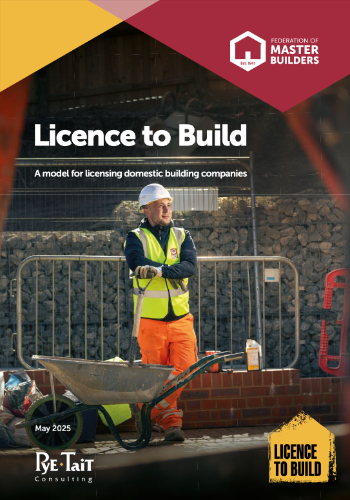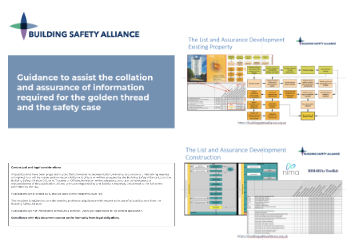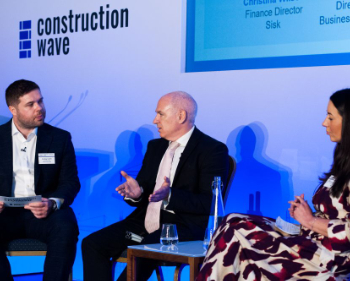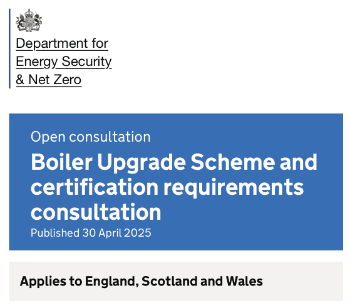Five steps towards a successful construction project
Contents |
[edit] Introduction
Based on his own experiences of construction projects, civil engineer Jack Tregartha outlines the five fundamental steps to project success.
[edit] Secrets to success or failure
Was it the team? Was it the lack of planning? Think back to when you were part of an unsuccessful construction project. Why didn’t it work? Below I outline my five steps to success, essential to any construction project.
[edit] Make a plan
Planning is essential to any successful operation and will ultimately decide the outcome. First you need to create a plan on how you are going to carry out the project - detailing resources, time, cost, constraints, specification requirements etc.
It’s necessary to draw on different team members to collaborate and solve problems which may be present to complete your plan. You need to share your plan for it to be effective.
Use project planning software such as CS Project. This helps break down every minute detail which allows you to share your vision with the team. Using this valuable tool can really help you on your way to achieving your project pathway dates. Make sure your document is accessible for everyone to see and share.
Another way to plan is to set an agenda and time limit on your meetings. Make sure each point made has a time limit to ensure you keep on track and don’t overrun.
Be sure to send the agenda around prior to the meeting. This will give your team ownership and responsibility. Produce meeting minutes with actions and issue stakeholders with a deadline. Parkinson’s Law states: “Work expands so as to fill the time available for its completion.”
Applying Parkinson’s Law positively will result in your plan converging rapidly. Make sure that if there are any roadblocks that may influence the completion of an individual task, it's raised as soon as possible so it can be sorted straight away as opposed to waiting for the next meeting.
[edit] Build a team
Unfortunately, no matter how good you are you can’t do it all on your own. It's vital to construct a high-performance team around you.
A high-performance work team is 'a group of goal-focused individuals with specialized expertise and complementary skills who collaborate, innovate and produce consistently superior results. The group relentlessly pursues performance excellence through shared goals, shared leadership, collaboration, open communication, clear role expectations and group operating rules, early conflict resolution, and a strong sense of accountability and trust among its members.'
The founding block when looking to build a high-performance team is cognitive diversity. Having people who have different ways of thinking, skill sets, opinions and viewpoints can spark innovation in a team and foster learning for everyone.
Often, hiring managers look for people who have the same thinking as them. It is this robotic approach which leads to an unmotivated team. Building your team not just based on demographics (age, gender, race etc.) but on cognitive diversity as well is paramount.
Sit down with your team and establish visions and goals of how the team would like to perform. Ask each member of the team for their input and what they would like to get out of the project. The visions and goals can then be set around these to make it an ultimate buy in for everyone and will give responsibility and accountability for the role they plan in the successful outcome.
Building a team has the same relationship of cement in concrete. It is a fundamental component to make the material successful.
[edit] Implement your strategy
Now that you have chosen the correct team, people with the right diversity, skill sets, knowledge and connections who are on board with the common goal, you will find the team has a much higher chance of implementing the project strategy.
Southwest Airlines have a great ethos: 'If we treat our employees right, they will treat our customers right’.
Being proactive at the project stage to successfully carry out the plan in fine detail will ensure the safe delivery of the project and improve the reputation of your business and deliver valuable repeat work with clients. Plans are not worth the paper they are written on if not implemented correctly.
[edit] Be prepared to adapt
As we all know, plans don’t always go the way we anticipate them. Unknown problems can crop up which temporarily distort the original plan. Therefore, it is essential to be flexible and adapt them to suit current situations. Again, using tools such as CS Project to revise the plan when faced with a problem means everyone can see the changes.
Also adapting to new ways of working with different people who have different experiences is essential and can provide for great learning. This requires an open mind towards change, to embrace people who may have different ways of thinking to you.
In the unsuccessful team you were part of, were you unable to adapt? How did you react and adapt to problems in your successful team?
[edit] Celebrate your success!
What went well? What didn’t go so well? Once the project has completed, go for a coffee! Bounce ideas off one another and review what went right and maybe what didn’t quite go as you expected. Celebrate the successes and analyse what didn’t go so well and try a different way on the next project or seek help from somebody else who may have experienced the same problem and maybe has completed it.
This article originally appeared on the Community Blog portion of the ICE website. It was written by Jack Tregartha, Eng Tech MICE, Site engineer, Buckingham Group Contracting Ltd and published on 2 October 2020.
--The Institution of Civil Engineers
[edit] Related articles on Designing Buildings Wiki
- Avoiding construction delays.
- ICE articles on Designing Buildings Wiki.
- Construction progress meeting.
- Construction project.
- Construction project management software.
- Project manager.
- Project team for building design and construction.
- Signs you need construction project management software.
[edit] External resources
Featured articles and news
Licensing construction in the UK
As the latest report and proposal to licence builders reaches Parliament.
Building Safety Alliance golden thread guidance
Extensive excel checklist of information with guidance document freely accessible.
Fair Payment Code and other payment initiatives
For fair and late payments, need to work together to add value.
Pre-planning delivery programmes and delay penalties
Proposed for housebuilders in government reform: Speeding Up Build Out.
High street health: converting a building for healthcare uses
The benefits of health centres acting as new anchor sites in the high street.
The Remarkable Pinwill Sisters: from ‘lady woodcarvers’ to professionals. Book review.
Skills gap and investment returns on apprenticeships
ECA welcomes new reports from JTL Training and The Electrotechnical Skills Partnership.
Committee report criticises UK retrofit schemes
CIOB responds to UK’s Energy Security and Net Zero Committee report.
Design and construction industry podcasts
Professional development, practice, the pandemic, platforms and podcasts. Have we missed anything?
C20 Society; Buildings at Risk List 2025
10 more buildings published with updates on the past decade of buildings featured.
Boiler Upgrade Scheme and certifications consultation
Summary of government consultation, closing 11 June 2025.
Deputy editor of AT, Tim Fraser, discusses the newly formed society with its current chair, Chris Halligan MCIAT.
Barratt Lo-E passivhaus standard homes planned enmasse
With an initial 728 Lo-E homes across two sites and many more planned for the future.
Government urged to uphold Warm Homes commitment
ECA and industry bodies write to Government concerning its 13.2 billion Warm Homes manifesto commitment.
From project managers to rising stars, sustainability pioneers and more.
Places of Worship in Britain and Ireland, 1929-1990. Book review.
The emancipation of women in art.

























